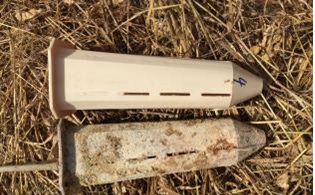Home grown bioplastics to improve efficiency of local rubber agriculture in Thailand
September 16, 2016

Three partners have joined forces in a project aimed at improving the agricultural efficiency and environmental performance of rubber tree plantations in Thailand. The three: lactic acid producer Corbion, materials supplier Global Bio-Polymers and packaging manufacturer Maxrich, are collaborating on the development of a biodegradable root growth packaging container for young rubber trees, as a more environmentally sustainable alternative to the polyethylene (PE) film bags or polypropylene (PP) cones currently used. To that end, Corbion and Global Bio-Polymers are developing a new bioplastic custom compound, specifically tailored to local soil conditions. Maxrich will be responsible for the production of the container.
The new container, said Corbion, is designed to encourage young rubber trees to root more effectively, increase tree longevity and improve survival yield rates when transplanted.
Rubber trees are planted in nurseries, above ground. Farmers use the root containers to enable the young trees to be easily transported and replanted. However, once the trees are mature, and before they are outplanted, the bag or cone containing the the root system must be removed or cut off, an operation that can result in considerable damage and yield loss of the final tree crop. While bags are more easily removed, the cone promotes better directional growth of the roots and can promote a longer tree life. Moreover, the PE bags also tend to end up as litter in the environment. On the other hand, removal of the cone potentially causes more root damage.
The answer, according to the partners in this project, is to use a bioplastic cone, made from a compound based on Corbion Purac's Poly Lactic Acid (PLA), along with other biopolymers. This would offer the benefits of directed root growth, thus promoting longer tree life and increasing the economic value per tree, and biodegradability at the end of life, eliminating the need to cut off the container. This would also solve the litter problem, Corbion pointed out. A particularly fitting detail is that the PLA derives from locally grown, Thai sugarcane.
As Kun Chalermkiatkul, Business Development PLA at Corbion Purac Thailand, said: "PLA bioplastics are a perfect material for the rubber tree root protection containers, given their biodegradability and performance. The fact that they are also made from feedstocks grown here in Thailand - made into bioplastic monomers via our 75kT lactide facility here in Rayong - makes the project even more interesting. Corbion is proud to promote the circular, biobased economy in Thailand in this way."
If the product is successful, the partners envision applying the concept to other economic crops – fruit trees, teak – as well.
“It is early days yet, though initial trials have gleaned positive results and we are excited to move this application forward as fast as nature allows us to,” said Stefan Barot, Bioplastics Director Asia Pacific for Corbion.
About the Author(s)
You May Also Like


